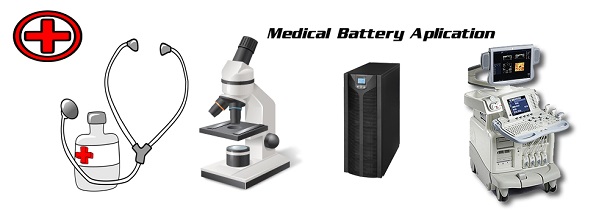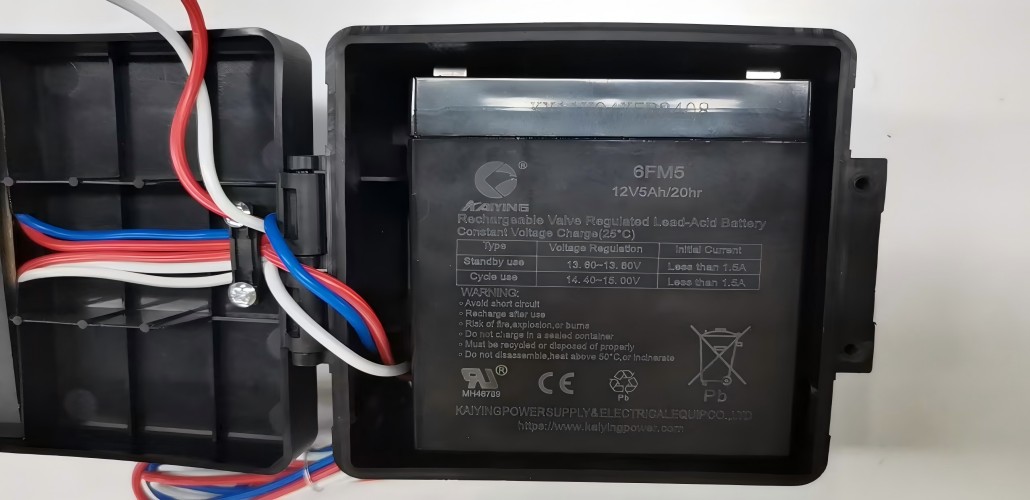Application of Lead-Acid Batteries in Medical Devices

With the continuous advancement of modern medical technology, portable medical devices have become indispensable due to their flexibility and convenience. These devices can provide timely medical services in various environments, whether in hospitals, clinics, or patients' homes. In these portable devices, lead-acid batteries play a crucial role due to their unique advantages. This article will detail the application of lead-acid batteries in different types of portable medical devices and analyze their specific requirements and advantages in various scenarios.
Portable Life Support Devices
 Portable Oxygen Concentrators (POCs)
Portable Oxygen Concentrators (POCs)
Portable oxygen concentrators offer significant convenience for patients requiring continuous oxygen supply. These devices often come equipped with high-performance lead-acid batteries, allowing users to operate for extended periods without external power. Typical configurations include dual battery packs that support up to 11 hours of outdoor usage, with each battery providing 5.5 hours. Some models also feature vehicle DC power adapters, connecting to car cigarette lighters to ensure a stable oxygen supply on the go.
 Infusion Pumps
Infusion Pumps
Infusion pumps are used to precisely control the rate of drug or fluid administration and are common in hospitals, clinics, and home care settings. In emergency situations, such as power outages, a stable and reliable power source is critical. Lead-acid batteries, known for their voltage stability, cost-effectiveness, and simple maintenance, are frequently used in hospital emergency vehicles and UPS systems. These batteries can immediately take over power supply in the event of a power outage, ensuring continuous treatment for patients dependent on sustained drug infusion.
Portable Diagnostic Devices
 Electrocardiographs (ECG)
Electrocardiographs (ECG)
Electrocardiographs are widely used for routine monitoring and emergency diagnosis of heart disease patients. Their reliability directly impacts diagnostic accuracy and treatment timeliness. Lead-acid batteries are ideal for these devices due to their stable voltage output. In cardiac care units, where ECGs may be needed at any time, lead-acid batteries provide long-lasting power assurance, ensuring the equipment functions reliably during critical moments.
 Ultrasound Machines
Ultrasound Machines
Ultrasound machines serve as essential tools for non-invasive diagnosis and need to operate in various environments, especially in remote areas without stable power supply. Lead-acid batteries require quick charging after full discharge, usually within 24 hours to maintain sufficient charge status. This rapid charging capability ensures the equipment is always ready, significantly enhancing diagnostic efficiency in emergencies.
Portable Emergency and Monitoring Devices
 Defibrillators
Defibrillators
Defibrillators are critical devices in emergency situations, capable of quickly responding to cardiac arrest. Lead-acid batteries, known for their high nominal voltage, large electromotive force, wide operational temperature range, simple structure, mature technology, and safety, are widely used in this field. These devices need to start swiftly and deliver strong instantaneous power during emergencies to ensure patients receive timely treatment.
 Patient Monitors
Patient Monitors
Patient monitors are essential equipment in intensive care units and emergency departments, used to monitor vital signs such as heart rate, blood pressure, and blood oxygen saturation. Lead-acid batteries provide crucial power support to these devices, especially in areas with unstable power or sudden power outages, ensuring stable operation.
 Anesthesia Machines
Anesthesia Machines
Anesthesia machines, used during surgeries to deliver precise doses of anesthetic gases, maintain patients in appropriate anesthesia states. Any power interruption during surgery can result in severe consequences, making these machines highly dependent on power stability. Lead-acid batteries, with their stable performance, ensure the equipment operates reliably when needed, preventing medical accidents.
Kaiyingpower lead-acid batteries play a significant role in portable medical devices due to their stable voltage output, cost-effectiveness, and ease of maintenance. Despite their drawbacks of large size, low specific energy, and relatively short lifespan, these disadvantages are outweighed by their advantages in specific application scenarios, making them an ideal choice for some portable medical devices. With technological advancements and increasing demands for medical device performance, the application of lead-acid batteries will continue to evolve, providing safer and more reliable medical services to patients.
